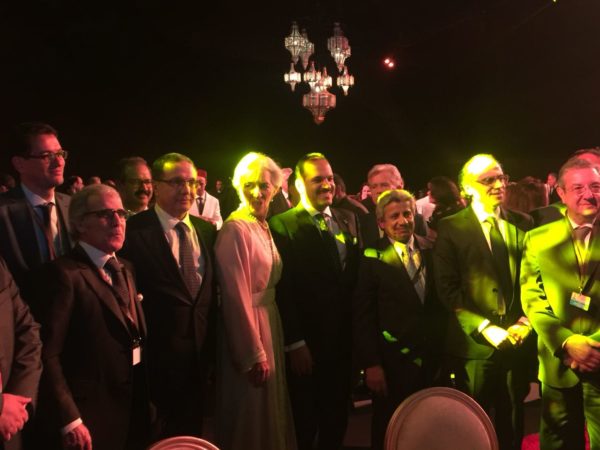At the end of the IMF conference in Marrakech, Jawad Kerdoudi, president of the Moroccan Institute of International Relations (IMRI) takes stock of the situation in the Arab world.
The IMF (International Monetary Fund) in partnership with the FMA (Arab Monetary Fund), the FADES (Arab Fund for Economic and Social Development) and the Moroccan government, organized an international conference in Marrakech the 29 and 30 January 2018 on the theme “Opportunities for all: growth, employment, and inclusion in the Arab world”. This conference brought together more than 500 participants from 22 countries.
The purpose of this conference was to take stock of the current situation in the Arab world, to propose recommendations to stimulate growth, employment and inclusion, especially for young people and women.
Since the 2011, the Arab world has been a real curse, resulting in numerous political conflicts and economic regression. While protesters in the “Arab Spring” demanded more democracy and greater prosperity and equality, many Arab countries have fallen into chaos and instability. This is particularly the case of Iraq, Libya, Syria and Yemen. The number of victims from 2011 to 500.000 is estimated, while 12 has been displaced in Syria.
The infrastructure of Syria and Yemen is almost destroyed and a flood of refugees has spread over Lebanon, Jordan, Turkey and even Europe. On the economic front, the Mena region (North Africa and Middle East) has experienced only an average growth of 3,6% since 2011, one-third less than the previous decade.
Due to the decline in the price of oil from 2014, the Arab oil-exporting countries saw their budget deficit rise to 10% of GDP, while the Arab oil-importing countries saw their public debt reach 90% of GDP . The average unemployment rate in the Mena region is 10%, but with disparities between countries (Qatar 1%, Jordan 18%) and age (youth are unemployed at 25%). This while 60% of the population of the region is less than 30 years, and 27 million of young people will enter the labor market in five years. The average wage bill for the Mena region is 10% of GDP, while it represents only 6% of GDP in emerging countries. Two-thirds of the MENA population does not have a bank account, and women’s participation rate is only one-third of that of men. Finally, SME loans amount to only 2% of GDP.
The Arab world is in dire need of structural reforms, otherwise the current situation will worsen in the next decade. Experts say that if nothing is done, average unemployment in the Mena region is likely to reach 14% in 2030. The Arab world is not monolithic, and reforms must be tailored to the specificities of each Arab country. Each Arab government needs to establish a vision that engages citizens and sets goals and a strategy to achieve them.
However, some challenges are common and common solutions can provide a solution. This is the case, for example, of women who must enjoy the same rights throughout the Arab world as men. Constituting 50% of the population, their integration into working life will weigh heavily in economic and social development. You have to start at the beginning, getting 100% girls to provide them with the training and skills to find a job.
It is necessary to facilitate their access to funding and to take concrete measures to facilitate their work: more flexible work schedules, day-care centers. The second priority is that of young people who must benefit from appropriate education to enable them to integrate into the world of work. In order to gain access to the new economy, educational programs must give a lot of space to new information and communication technologies (NICTs), and to the learning of foreign languages, especially English. has become the language of business and science. They must also be prepared for the opportunities opened up by the green economy, especially renewable energies. It is necessary to instill in them from childhood the spirit of entrepreneurship, to accompany them in the incubation of their projects, and to seek funding.
Other recommendations focus on improving governance to deliver efficient and transparent public services. The state must ensure that inclusive growth programs are put in place and that social spending is increased to help the most disadvantaged. It must improve the business climate for domestic investors, and attract foreign direct investment. Public finance policy must be sound to minimize the budget deficit. In several Arab countries, there is a need to broaden the tax base, reduce tax exemptions, and combat tax evasion. Like Egypt, it is recommended that government subsidies to commodities be replaced by targeted transfers to the poorest. Finally, we must take all measures to support the private sector, which is the only one able to absorb unemployment.
In conclusion, the Arab world after the shock of 2011 is at a crossroads. All the actors of the nation: Government, Parliament, Civil Society must contribute to get it out of the disastrous situation where it is currently.
Jawad Kerdoudi



